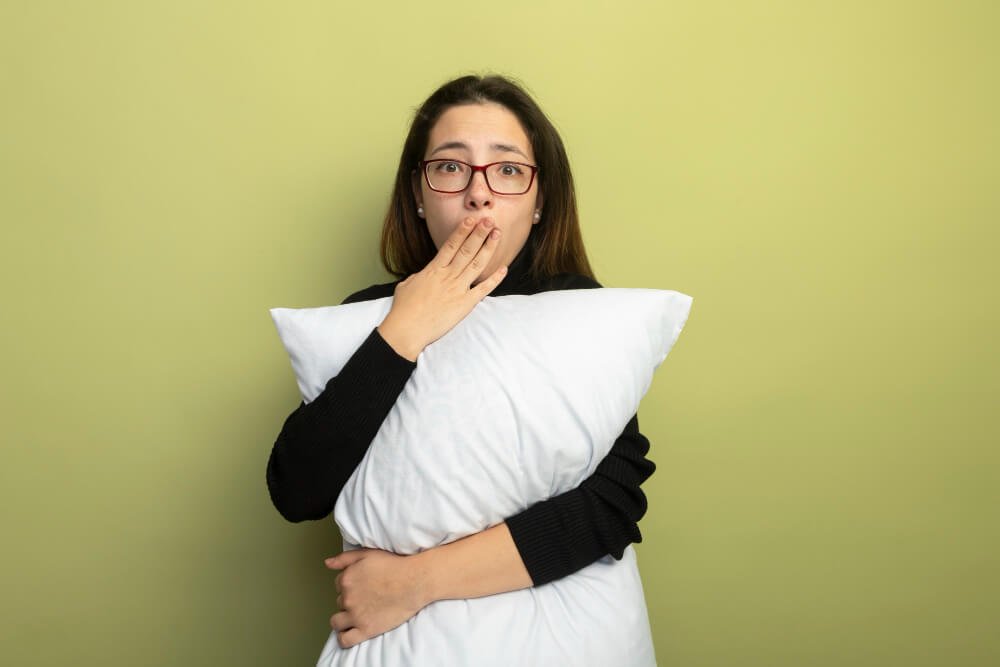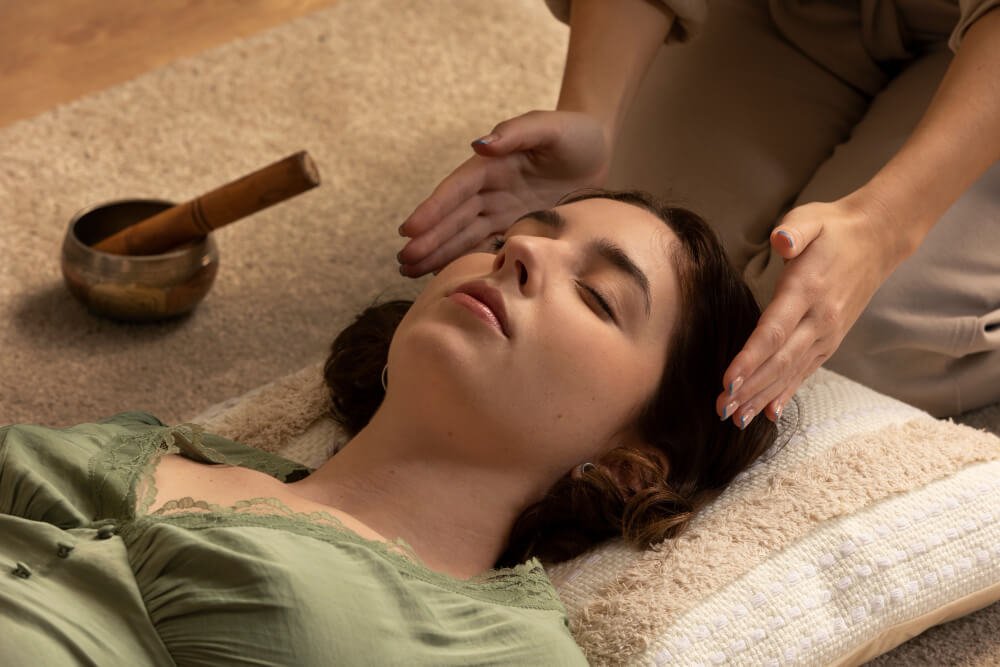The Importance of Sleep in Holistic Health

When it comes to health, we often focus on diet and exercise. But there’s another vital piece of the puzzle: sleep. It’s not just about getting enough rest; it’s about embracing sleep as a crucial part of a holistic health approach. Let’s dive into why sleep is so essential and how it impacts our overall well-being.
Why Sleep Matters
Physical Health
Sleep is a time for the body to repair and rejuvenate. During deep sleep, your body works hard to:
- Heal muscles and tissues: This is when your body repairs damage from the day and builds muscle.
- Boost the immune system: Sleep strengthens your immune response, helping you fend off illnesses.
- Regulate hormones: Sleep helps balance hormones that control hunger, stress, and growth.
Without enough sleep, you’re more prone to weight gain, infections, and even chronic diseases like diabetes and heart disease. Sleep isn’t just downtime; it’s an active, critical period for your body’s maintenance.
Mental Health
Your brain is just as busy during sleep. It processes information, consolidates memories, and clears out toxins. Here’s how sleep supports your mental health:
- Improves memory and learning: During sleep, your brain processes and stores information from the day.
- Enhances problem-solving skills: Good sleep can boost creativity and help you tackle problems more effectively.
- Regulates mood: Lack of sleep can lead to irritability, anxiety, and depression. A well-rested mind is a happier mind.
Emotional Balance
Emotions can run wild without proper sleep. Ever notice how everything feels worse after a sleepless night? That’s because sleep helps:
- Manage stress: It’s easier to handle life’s ups and downs when you’re well-rested.
- Enhance relationships: Patience and understanding improve with good sleep, making interactions smoother.
Physical Performance
Whether you’re an athlete or just trying to keep up with daily activities, sleep is key to physical performance. Good sleep:
- Increases endurance: You have more energy and stamina when you’ve slept well.
- Reduces injury risk: Better coordination and reaction times mean fewer accidents.
How Much Sleep Do You Need?
Sleep needs vary by age and individual, but general guidelines are:
- Adults: 7-9 hours per night
- Teens: 8-10 hours per night
- Children: 9-11 hours per night
- Infants: 12-15 hours per night
These are just averages. Some people feel great with seven hours, while others need nine to function at their best. Listen to your body; it knows what it needs.
Creating a Sleep-Friendly Environment
Your sleep environment plays a big role in how well you rest. Here are some tips for creating a sleep-friendly space:
- Keep it cool: A cooler room (around 65°F or 18°C) is ideal for sleep.
- Limit noise and light: Use earplugs, white noise machines, and blackout curtains to create a quiet, dark environment.
- Comfortable bedding: Invest in a good mattress and pillows that support your sleep style.
Bedtime Routine
Establishing a calming bedtime routine can signal your body that it’s time to wind down. Try these tips:
- Consistent schedule: Go to bed and wake up at the same time every day, even on weekends.
- Relaxing activities: Read a book, take a warm bath, or practice gentle yoga before bed.
- Limit screens: Reduce screen time an hour before bed to lower exposure to blue light, which can disrupt your sleep cycle.
Diet and Sleep
What you eat and drink affects your sleep. To promote better rest:
- Avoid caffeine and nicotine: These stimulants can keep you awake.
- Limit alcohol: While it might make you drowsy, alcohol can disrupt your sleep cycle.
- Eat sleep-friendly foods: Foods rich in magnesium (like nuts and seeds), melatonin (such as cherries), and tryptophan (like turkey) can help you sleep better.
Exercise and Sleep
Regular physical activity can improve sleep quality. Aim for:
- Daily exercise: Even a 30-minute walk can make a difference.
- Timing matters: Try not to exercise too close to bedtime, as it might keep you awake.
Exercise reduces stress and anxiety, boosts mood, and helps tire you out, making it easier to fall asleep and stay asleep.
Managing Stress
Stress is a major sleep disruptor. Here are some ways to manage stress for better sleep:
- Mindfulness and meditation: Practices like these can calm your mind before bed.
- Journaling: Writing down your thoughts can help clear your mind.
- Breathing exercises: Simple techniques can reduce stress and promote relaxation.
Remember, good sleep is the foundation of holistic health. It supports every aspect of your well-being, from your physical health to your mental and emotional balance. Embrace it, prioritize it, and see how it transforms your life.
The Connection Between Sleep and Mental Health
Cognitive Function
Sleep has a profound impact on cognitive functions. Lack of sleep can lead to:
- Memory issues: Sleep is crucial for memory consolidation. Without adequate rest, you might find it harder to remember things.
- Poor concentration: It’s challenging to focus and stay alert when you’re sleep-deprived.
- Impaired judgment: Decision-making skills can suffer, leading to mistakes and accidents.
On the flip side, good sleep enhances cognitive abilities, making you sharper and more efficient in your daily tasks.
Emotional Resilience
Sleep and emotional health are closely linked. Insufficient sleep can heighten emotional reactivity, making you more susceptible to:
- Mood swings: Lack of sleep can cause sudden and intense changes in mood.
- Anxiety and depression: Chronic sleep deprivation is a significant risk factor for these conditions.
- Stress: Poor sleep can increase stress levels, creating a vicious cycle of stress and sleeplessness.
Conversely, adequate sleep promotes emotional stability, helping you handle stress and maintain a positive outlook on life.
Sleep Disorders: Recognizing and Addressing Them
Sometimes, sleep issues are more than just bad habits. Sleep disorders can significantly impact your health. Here are a few common ones:
Insomnia
Insomnia is characterized by difficulty falling asleep or staying asleep. It can be caused by stress, anxiety, medications, or poor sleep habits. If you’re experiencing insomnia:
- Establish a routine: Go to bed and wake up at the same time every day.
- Create a restful environment: Ensure your bedroom is conducive to sleep.
- Seek professional help: Cognitive Behavioral Therapy for Insomnia (CBT-I) is an effective treatment.
Sleep Apnea
Sleep apnea is a serious condition where breathing repeatedly stops and starts during sleep. It’s often accompanied by loud snoring and daytime fatigue. If you suspect sleep apnea:
- Consult a doctor: A sleep study can diagnose the condition.
- Treatment options: CPAP (Continuous Positive Airway Pressure) machines and lifestyle changes can help manage it.
Restless Legs Syndrome (RLS)
RLS causes uncomfortable sensations in the legs, leading to an irresistible urge to move them. It can make falling asleep challenging. To manage RLS:
- Exercise regularly: Physical activity can alleviate symptoms.
- Medication: Consult your doctor for appropriate treatments.
The Role of Technology in Sleep
In our tech-driven world, devices can both hinder and help sleep. Here’s how to navigate technology for better rest:
Limiting Screen Time
The blue light from screens can interfere with your sleep by suppressing melatonin production. To mitigate this:
- Set a screen curfew: Turn off devices an hour before bed.
- Use blue light filters: Many devices have settings to reduce blue light exposure.
Sleep Apps
On the flip side, technology offers tools to improve sleep:
- Relaxation apps: Apps like Calm or Headspace offer guided meditations and sleep stories.
- Sleep trackers: Devices like Fitbits can monitor your sleep patterns and provide insights.
Building a Holistic Sleep Routine
A holistic approach to sleep involves more than just hitting the sack. It’s about creating a balanced lifestyle that supports good sleep. Here are some strategies:
Daytime Habits
- Get natural light: Exposure to sunlight helps regulate your sleep-wake cycle.
- Stay active: Regular physical activity promotes better sleep.
- Eat well: A balanced diet supports overall health, including sleep quality.
Nighttime Rituals
- Wind down: Engage in calming activities before bed.
- Stay consistent: Stick to a sleep schedule, even on weekends.
- Limit stimulants: Avoid caffeine and heavy meals close to bedtime.
Listening to Your Body
Finally, the most important part of holistic sleep health is tuning in to your body’s needs. Here’s how:
- Be mindful: Pay attention to how you feel throughout the day.
- Adjust as needed: If you’re tired, allow yourself more rest.
- Seek help: If sleep issues persist, don’t hesitate to consult a healthcare professional.
By making sleep a priority and integrating these practices into your daily life, you’ll support your overall health and well-being. Remember, sleep isn’t a luxury; it’s a necessity. Embrace it, and you’ll see the benefits ripple through every aspect of your life.
Conclusion
Sleep is a cornerstone of holistic health, impacting every facet of our lives from physical and mental well-being to emotional balance and cognitive function. It’s not just about the quantity of sleep, but also the quality. Prioritizing sleep means embracing practices that foster a sleep-friendly environment, creating routines that signal to your body it’s time to wind down, and being mindful of lifestyle choices that can either support or hinder good sleep.
In our fast-paced world, it’s easy to overlook the importance of rest. Yet, investing in good sleep can lead to significant improvements in how we feel and function daily. By understanding the profound effects of sleep on our health and making small, consistent changes, we can enhance our overall quality of life.
Remember, sleep is a fundamental part of self-care. So, give yourself permission to rest, recharge, and enjoy the myriad benefits that come with a good night’s sleep. Your body, mind, and spirit will thank you for it.



